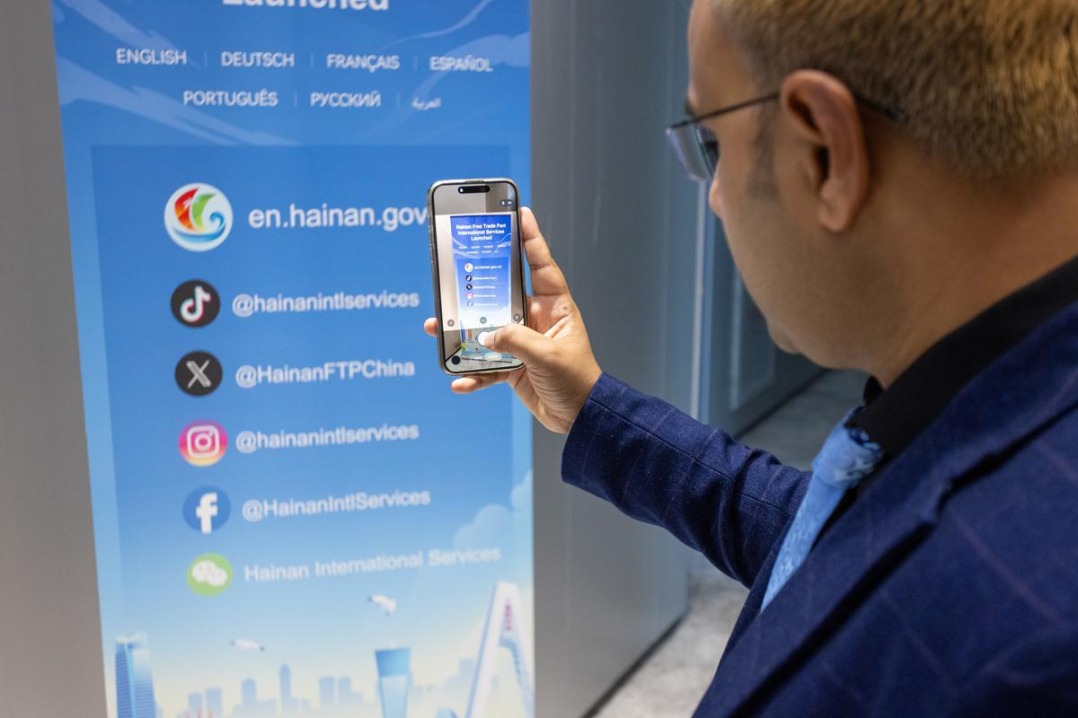Balloon incident much paranoia about nothing
By Tom Fowdy | chinadaily.com.cn | Updated: 2023-02-14 15:08

For the past week or so, the United States has been in the grip of rampant paranoia over what it has termed as a "Chinese spy balloon" and the alleged sighting of several other "unidentified flying objects". As a show of force, and in a display of domestic political theater, the Joe Biden administration has been shooting them down.
These objects, portrayed as threats to the national security of the United States, are being used to weaponize mass hysteria with a view to push a sporadic anti-China agenda, as the Biden administration strives to push US defence spending up to unprecedented levels, and rope in allies to militarily and strategically contain Beijing.
Recognizing how the US weaponizes fear, mass hysteria and paranoia in pursuit of its goals is key to understanding US politics as a whole. While in theory, the US is a decentralized federal democracy with many layers of government, the historical trajectory of the last half of the 20th century has conditioned a dramatic centralization of power in lieu of the challenges the country faced while emerging as a hegemonic state, including the Cold War, the countercultural revolution of the 1960s, the "global war on terror", and now the struggle against China.
Simply put, in order to strengthen unity and build a consensus on the US' international goals in a deeply divided country, American statecraft has veered toward weaponizing fear and mass hysteria to sustain its agenda and power amid the rise of mass media. The US, after all, is a populous and diverse country which, throughout its history, has sought to hold together the entire population under one ideology despite the vast socioeconomic and ethnic fractures that were once enough to trigger a full-blown civil war.
These factors have created a structural arrangement through which the US leadership strives to centralize power in a decentralized country, and likewise must secure democratic consent for policies which, by and large, are hegemonic including those promoting endless wars and encouraging political interferences in other countries' internal affairs.
And to do so, US politicians have learned to cultivate paranoia, drama and mass hysteria as a means to drive the political agenda and consensuses in their direction, by creating constant fear of a given "other" which in each scenario, threatens the "exceptional" ideology and values of the US.
In doing so, the US constantly exaggerates and amplifies the perceived threat to its national security, interference in its internal affairs by, or the ill intentions of, its designated opponents in a bid to mandate public consent for its aggressive foreign policies. This includes highly dubious allegations of spying, espionage and subversion.
The US portrays its enemies as all-powerful, all-threatening and omniscient actors far beyond their real capabilities, which it uses to spread panic among Americans, prompting them to believe they "must act now" against it. Such portrayals include manufactured news such as Saddam Hussein possessing "weapons of mass destruction", the Democratic People's Republic of Korea planning to "launch a nuclear strike against the US", "Russia interfering in US elections" and "China purportedly spying on the US" in a whole range of areas.
The spy-balloon and UFO drama is being used by the administration and the Pentagon to manufacture support for increased defence spending and mass militarization. Last year, the Biden administration weaponized the events in Ukraine to reorient its foreign policy to much more aggressively contain China militarily.
The Biden administration places greater emphasis on the encirclement of China by deepening its alliances with other countries, which is more belligerent and provocative than the policy of the Donald Trump administration, which despite its "America First" policy was not so militaristic. This helps the administration to seek domestic support for even higher military spending, and spread the same paranoia and fear into other countries to lock them into the strategic agenda it is setting.
The US has found in the balloon controversy the perfect pitch for such a narrative, reminding us once again that the calibration of orchestrated drama and fear is a critical aspect of the US' hegemonic foreign policy. Using this fear, the US strives to raise the stakes of ideological confrontation and pretend every foreign policy issue is a "do or die" moment for the country.
This has transformed US politics into a hotbed of paranoia, irrationality and instability which poses risks to the security and stability of the world at large.
The author is a British political and international relations analyst. The views don't necessarily reflect those of China Daily.
If you have a specific expertise, or would like to share your thought about our stories, then send us your writings at opinion@chinadaily.com.cn, and comment@chinadaily.com.cn.























